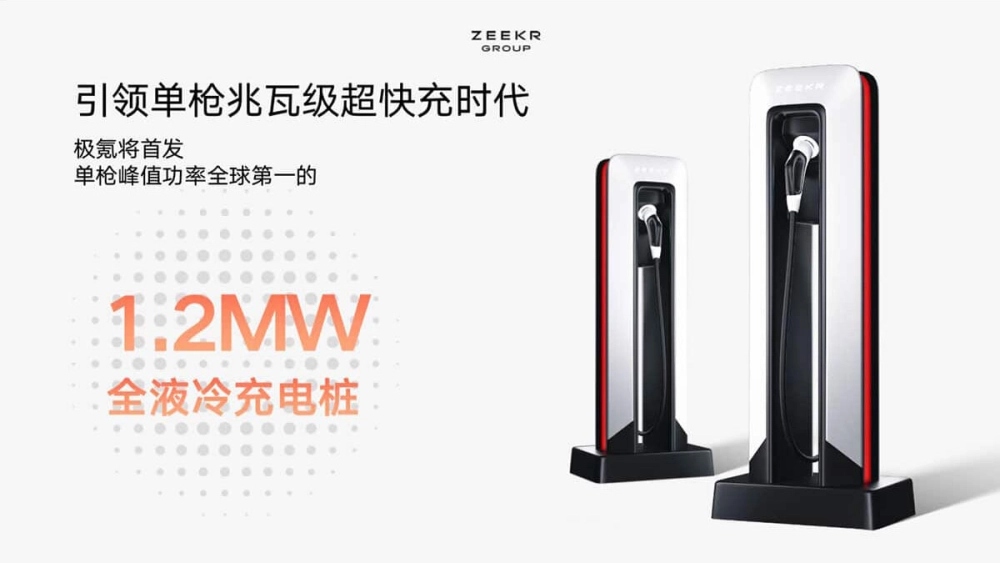Revolution in electric vehicle charging: Zeekr and Huawei present stations with a capacity of 1.2 and 1.5 megawatts!
Department: News
Zeekr and Huawei Digital Power Make a Breakthrough! Unveil 1.2MW and 1.5MW Ultra-Powerful EV Charging Stations. Find Out How They Will Change the EV World.
AMP Version
Charging speed has always been a key question for owners and potential buyers of electric vehicles. Imagine being able to charge your electric car almost as fast as filling up the tank with gas! Sounds like science fiction? Automotive brand Zeekr (owned by Geely) and tech giant Huawei Digital Power are bringing this reality closer by announcing revolutionary charging stations with incredible power.
New power standard: 1.2 and 1.5 MW from Zeekr and Huawei
The collaboration between Zeekr and Huawei Digital Power has resulted in the creation of charging stations that set completely new power records. We are talking about 1.2 megawatts (MW) and even 1.5 megawatts (MW)!
What does this mean in practice? To understand the scale: most modern "ultra-fast" charging stations operate with capacities from 150 to 350 kilowatts (kW). New stations from Zeekr and Huawei are 4-10 times faster!
Technological breakthrough: Developing such powerful systems requires major innovations in power electronics, cooling systems and energy management. Huawei Digital Power, with its vast experience in energy and digital technologies, was able to implement this ambitious project.
Charging in minutes: The potential of megawatt stations
Although the exact figures for charging times for specific models of electric vehicles have not yet been announced (they depend on the battery capacity and the capabilities of the car itself), the potential is obvious.
Ultra-fast charging: A power of 1.2-1.5 MW theoretically allows you to replenish the range of hundreds of kilometers in a matter of minutes. This radically changes the user experience, bringing it closer to the usual refueling.
Vehicle Requirements: It is important to understand that in order to use this power, the EV itself must be designed to accept ultra-fast charging (e.g. have an 800-volt or more advanced architecture and a corresponding battery management system). Zeekr, as a premium EV manufacturer, will likely equip its future models with compatible technologies.

Industry Implications and the Future of Charging Infrastructure
The announcement of Zeekr and Huawei is more than just a technology demo. It is a signal to the entire industry:
- Breaking Barriers: Ultra-fast charging removes one of the main barriers to mass adoption of EVs – long waiting times at a charging station.
- New round of competition: Other car manufacturers and developers of charging systems will be forced to speed up their developments to keep up.
- Infrastructure development: The emergence of megawatt stations will require the modernization of power grids and the creation of new infrastructure capable of withstanding such loads.
Zeekr and Huawei Digital Power did not just show powerful hardware - they demonstrated a vision of the future, where owning an electric car becomes even more convenient and practical. Stations with a capacity of 1.2 and 1.5 MW are a technological leap that can significantly accelerate the electrification of transport. It remains to be seen how quickly this technology will begin to be implemented in real life and which electric cars will be the first to benefit from its advantages.
How quickly do you think such chargers will become commonplace on our roads?
Comments